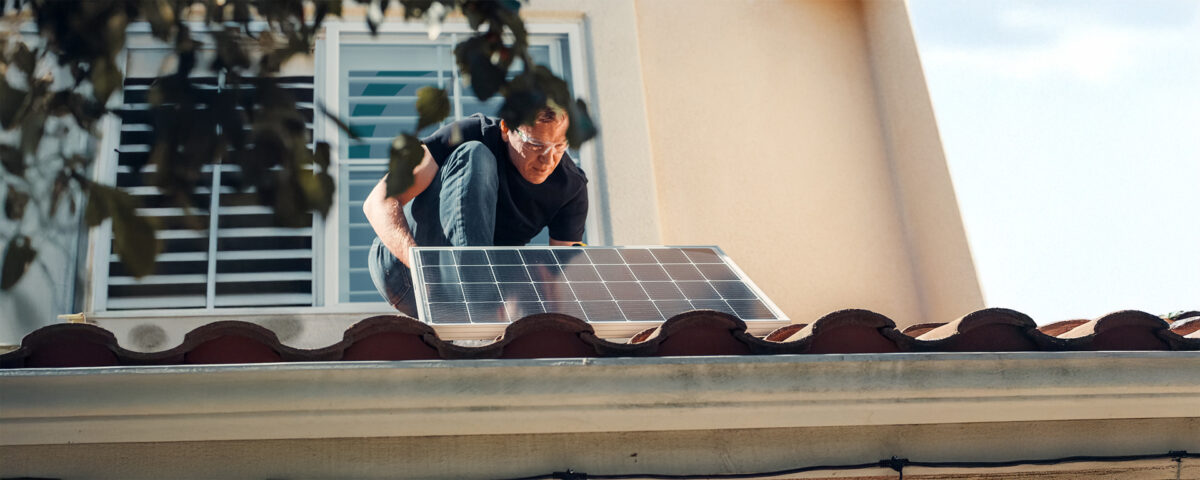Solar Panel Maintenance
Joseph Martinez
on
December 30, 2024
Maximizing Your Solar Investment - Proper Panel Maintenance
You’ve seen solar panels everywhere – on rooftops, in fields, and along highways—collecting clean, renewable energy from the sun. But once those panels are installed, what keeps them running smoothly year after year? Turns out, solar panel maintenance is simpler than you might think, but understanding the basics can help maximize efficiency and extend the life of your system.
How Solar Panels Work
Solar panels, also known as photovoltaic (PV) modules, convert sunlight into direct current (DC) electricity, which an inverter then turns into usable alternating current (AC) for your home or business. Because they’re constantly exposed to the elements, panels can get dusty, grimy, or partially shaded by new tree growth—all of which can reduce the power they produce.
Common Factors That Impact Performance
Dirt and Debris:
Over time, leaves, dust, bird droppings, and pollen can accumulate on panel surfaces, blocking some of the sun’s rays. Even a small amount of buildup can diminish your energy output.Angle and Positioning:
The tilt and orientation of your panels influence their ability to catch the sun’s rays. A slight shift or misalignment can reduce your system’s efficiency—though this is less likely to happen on newer systems with well-designed mounts.Weather and Climate:
Regions with frequent rain often benefit from natural rinsing, but in drier, dustier climates, panels may require more frequent cleaning. Extreme temperatures can also affect performance, though modern panels are built to withstand a wide range of conditions.Shade and Growth:
Trees, bushes, or new structures can cast shade over your panels, greatly reducing their electricity production. Trimming back branches or optimizing panel placement can help restore performance.
Simple Steps to Keep Your Panels Efficient
Clean Occasionally (When Safe and Necessary)
Most rainstorms will do a decent job of washing away surface dust. However, if you live in a particularly dry or dusty region, consider giving your panels a gentle clean—using water and a soft, non-abrasive brush or sponge—when you notice visible buildup.Monitor System Output
Keep an eye on how much energy your system produces weekly or monthly. Subtle dips in energy output could point to a dirty panel, an electrical issue, or excessive shading. Early detection often prevents bigger problems later.Watch Out for Shade
Check your panels occasionally for new obstructions. Trees grow faster than you might think, and even a small branch casting shade can affect your system’s output. A little trimming or tree repositioning can make all the difference.Schedule a Professional Check-Up (If Needed)
If you’re comfortable on the roof and understand basic electrical components, a visual inspection can catch loose connections or physical damage. However, if you’re unsure or spot anything unusual, contacting a professional is the safest path.
Solar Panel Myths
“They Require Constant Cleaning.”
In reality, panels are designed to be as low-maintenance as possible. Depending on your location, you might only need to clean them once or twice a year—or rely on rainfall to do the job.“Professional Servicing Is Expensive.”
While professional services come with a cost, periodic check-ups can save money in the long run by fixing small issues before they become big ones.“Solar Panels Have a Limited Lifespan of About 10 Years.”
Modern solar panels typically come with warranties of 25 years or more and can continue to produce energy efficiently well beyond that period with proper maintenance.“Strong Winds Will Blow Panels Off My Roof.”
Solar panels are engineered to withstand high winds and are securely mounted to rooftops. In regions prone to extreme weather, installations are further reinforced to ensure stability and safety.“Once Installed, They Don’t Need Any Attention.”
While solar panels are durable, neglecting maintenance can lead to reduced efficiency and potential damage. Regular check-ups ensure they operate at optimal performance.“Snow Completely Blocks Solar Energy Production.”
Snow can temporarily reduce energy production, but panels are often angled to allow snow to slide off naturally. Additionally, sunlight can still penetrate partially covered panels, maintaining some level of energy generation.“Solar Panels Don’t Work on Cloudy Days.”
Solar panels can still generate electricity on cloudy or overcast days, albeit at reduced efficiency. Modern panels are designed to capture a broader spectrum of light, ensuring consistent energy production even in less-than-ideal weather.
Staying Informed = Staying Efficient
Educating yourself on the basics of solar panel care is an easy way to ensure you’re making the most of your renewable energy system. By proactively checking for dirt, shade, and other performance inhibitors, you’ll keep your panels running strong for decades.
Consider ARC's Maintenance Packages
At ARC, we understand that installing a solar system is just the beginning of your renewable energy journey. As a full-service EPC (Engineering, Procurement, and Construction) company, we not only build, engineer, and install your solar panels but also provide ongoing maintenance to ensure they operate efficiently for years to come.
Our maintenance services include:
- Regular Cleanings: Keeping your panels free from dirt and debris to maintain optimal performance.
- Scheduled Inspections: Periodic checks to identify and address any potential issues before they become major problems.
- Responsive Support: Prompt assistance if you notice a drop in energy production or encounter any other concerns.
By choosing ARC, you’re partnering with a team dedicated to the long-term success of your solar investment. We offer reliable maintenance packages tailored to your specific needs, ensuring your system continues to deliver clean, efficient energy consistently.
Work with us to keep your solar panels performing at their best. Contact ARC today to learn more about our maintenance services and how we can support your solar energy needs for the long haul.

